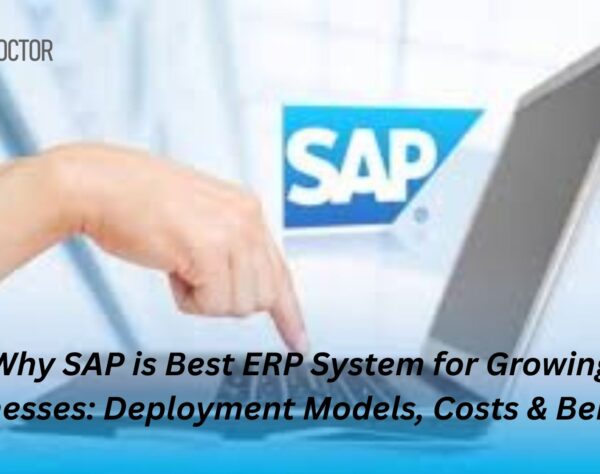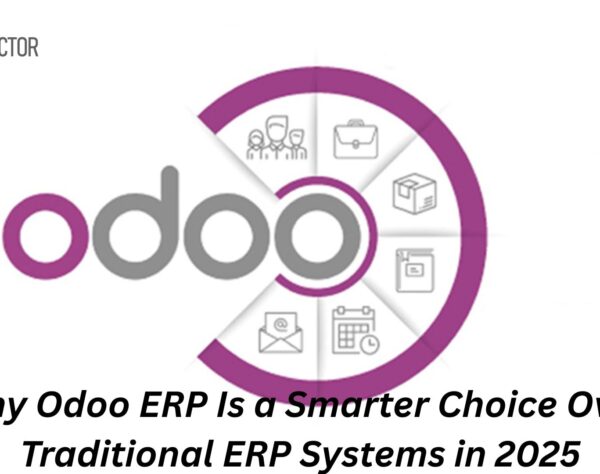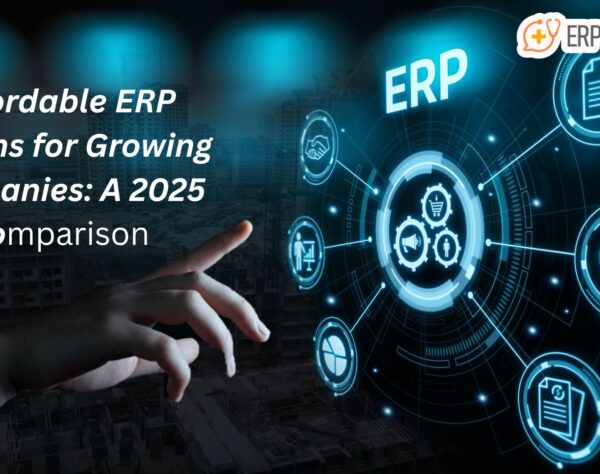
Oracle ERP vs SAP S/4HANA: A Balanced, In-Depth Comparison

Oracle ERP vs SAP S/4HANA: Choosing the Right Fit for Your Business
In the evolving world of enterprise resource planning, Oracle ERP and SAP S/4HANA stand out as two of the most powerful and widely adopted solutions on the market. Designed for large-scale operations and digital transformation, both platforms offer end-to-end functionalities to streamline finance, supply chain, manufacturing, HR, and more. But how do they really compare? This blog explores a balanced, detailed comparison of Oracle ERP and SAP S/4HANA to help businesses make informed decisions.
Platform Overview
Oracle ERP
Oracle ERP Cloud is a comprehensive cloud-based suite offering modules across financials, procurement, project management, risk management, and more. Built on Oracle’s own infrastructure, it leverages AI, machine learning, and real-time analytics to provide business agility.
SAP S/4HANA
SAP S/4HANA is SAP’s next-generation ERP suite built on the high-performance HANA in-memory database. Available in both cloud and on-premise deployments, it offers real-time processing, AI integration, and embedded analytics for faster and smarter decision-making.
Core Features Comparison
| Feature | Oracle ERP | SAP S/4HANA |
|---|---|---|
| Deployment Options | Cloud-first | Cloud, On-Premise, Hybrid |
| Database | Oracle Database | SAP HANA (in-memory) |
| Financial Management | Strong with AI insights | Strong with real-time data analytics |
| Supply Chain Management | End-to-end visibility | Real-time inventory & planning |
| User Interface | Modern and mobile-optimized | Fiori UX, customizable |
| AI and ML Capabilities | Embedded across modules | Embedded with SAP AI Core |
| Integration Capabilities | Strong with Oracle ecosystem | Strong with SAP and 3rd party tools |
| Customization | Configurable with extensions | Deep industry-specific customization |
Advantages of Oracle ERP
- Unified Cloud Experience: Oracle ERP offers a true cloud-first experience with consistent updates and reduced infrastructure overhead.
- Advanced AI and Analytics: Native AI capabilities provide predictive planning, intelligent approvals, and anomaly detection.
- Intuitive UI: Built with a modern user interface optimized for mobility and ease of use.
- Financial Focus: Particularly strong in financials, budgeting, and enterprise performance management.
- Scalability: Suitable for rapidly growing companies and global enterprises.
Advantages of SAP S/4HANA
- In-Memory Speed: The HANA database allows for real-time insights and faster processing of large data volumes.
- Flexibility in Deployment: Offers cloud, on-premise, and hybrid models depending on business requirements.
- Industry Depth: SAP S/4HANA has strong vertical solutions tailored for industries like manufacturing, automotive, and pharmaceuticals.
- Smart Integration: Seamless connection with other SAP products (like SuccessFactors, Ariba, Concur).
- User Experience: SAP Fiori provides a personalized, role-based UX for higher productivity.
Suitability by Business Type
- Large Enterprises: Both platforms are highly suitable, but SAP S/4HANA often appeals more to companies in highly regulated or asset-intensive industries due to its industry-specific modules.
- Mid-Market to Upper Mid-Market: Oracle ERP may offer a smoother cloud transition and faster time to value for mid-sized companies aiming for rapid growth.
- Finance-Driven Businesses: Oracle’s strength in financials and performance management makes it attractive for finance-heavy organizations.
- Manufacturing and Supply Chain-Focused Businesses: SAP S/4HANA’s real-time capabilities and IoT integrations give it an edge.
Decision-Making Considerations
- Existing Ecosystem: Companies already using Oracle or SAP systems may find easier integration staying within the same ecosystem.
- Customization Needs: SAP offers deeper customization for industry-specific requirements, while Oracle focuses on configuration with fewer technical complexities.
- Deployment Strategy: Organizations preferring on-premise or hybrid options might lean toward SAP, while cloud-first strategies may benefit from Oracle’s architecture.
- Speed of Implementation: Oracle ERP Cloud may have an edge in faster rollouts with standardized processes.
Final Thoughts
There is no one-size-fits-all answer in the Oracle ERP vs SAP S/4HANA debate. The right choice depends on your organization’s size, industry, digital maturity, and long-term strategy. Both ERP systems offer powerful capabilities, and your decision should be driven by alignment with your specific business goals.
FAQs: Oracle ERP vs SAP S/4HANA
1. Which ERP is better suited for highly regulated industries?
SAP S/4HANA often offers deeper compliance and industry-specific modules for sectors like pharma and aerospace.
2. Can Oracle ERP handle multi-entity global operations?
Yes, Oracle ERP is designed for multinational operations, with strong support for localization and compliance.
3. Is SAP S/4HANA only available on the cloud?
No, SAP S/4HANA offers cloud, on-premise, and hybrid deployment models.
4. Does Oracle ERP support machine learning natively?
Yes, Oracle ERP has built-in AI and ML capabilities across financials, supply chain, and risk management.
5. Can SAP S/4HANA be integrated with non-SAP systems?
Yes, it supports integration with a wide range of third-party and legacy systems.
6. Which ERP has better financial reporting tools?
Oracle ERP is known for its robust financial management and reporting features.
7. How often does Oracle ERP receive updates?
Oracle ERP Cloud delivers quarterly updates with new features and improvements.
8. Is the user experience customizable in SAP S/4HANA?
Yes, SAP Fiori allows for personalized, role-based user interfaces.
9. Which ERP is better for fast-growing mid-sized companies?
Oracle ERP may offer faster deployment and ROI for mid-sized businesses aiming to scale quickly.
10. Can both Oracle ERP and SAP S/4HANA be used globally?
Yes, both platforms support global compliance, languages, currencies, and localizations.







